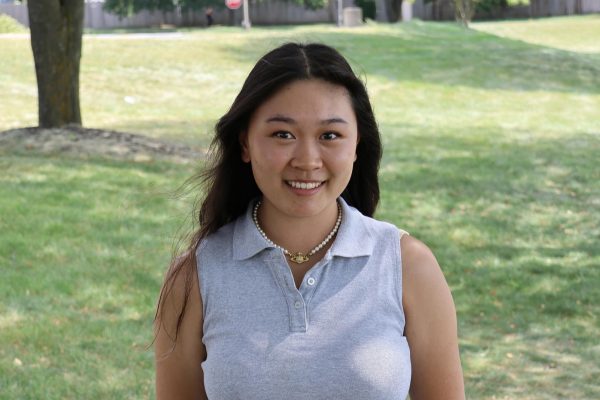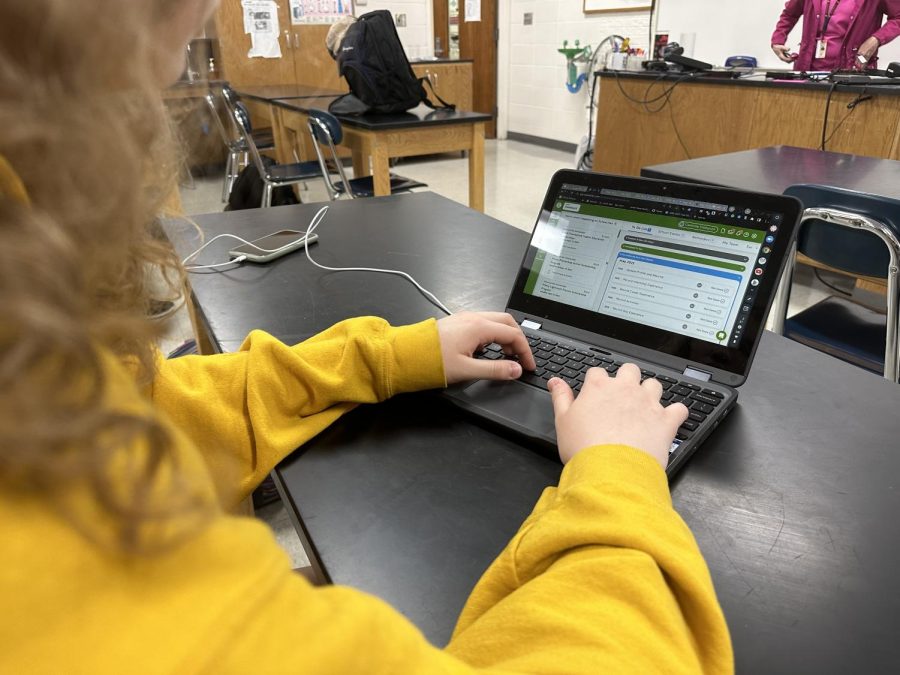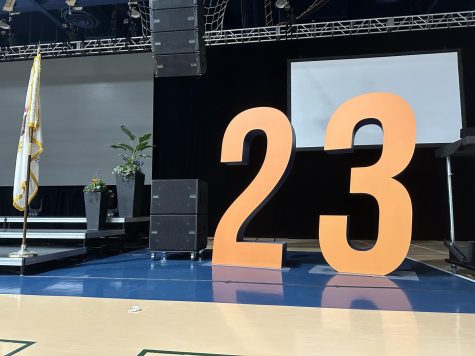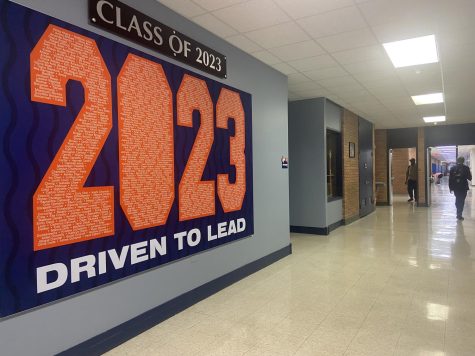Column: Six things juniors can do over the summer to prepare for college applications
Photo by Claire Tanza
As summer approaches, juniors are preparing to relax after a stressful year of high school. Although students get to enjoy not having to worry about a heavy workload during the summer, there are still many things that juniors can do over the next few months to ensure that their first semester of senior year isn’t all panic and college applications. Here are some things that juniors can do to prepare for and improve their college applications, as well as their final year at Naperville North.
Ask your teachers for letters of recommendation
Teachers often like to think about letters of recommendation over the summer, so asking at the end of your junior year is extremely important. Some teachers have a limit to how many letters of recommendation they write, so in order to get letters from the teachers you want, you’ll have a better chance of success if you ask early.
It’s best to ask core subject teachers (English, Math, Science, etc.), or someone who teaches a class that’s related to your college major. Before requesting a letter, make sure to check the requirements of the colleges you’re applying to. Some require a core academic teacher or a counselor; some require two letters or won’t accept any letter of recommendation at all. It’s also important that the teacher knows you well and preferably taught you during your junior year.
The person who writes your recommendation letter is doing you a favor. Show responsibility by giving them plenty of time to plan and write, and you are more likely to receive a better, well-thought-out letter. If you don’t ask by the end of your junior year, try to ask at the beginning of your senior year.
Research colleges and plan visits
The summer after junior year is one of the best times to think about which colleges you want to apply to and what you’re looking for in a campus. The size of the school, the ranking, the cost, the weather and the proximity to home are just a few important factors that weigh into deciding where to apply.
One of the best ways to get a feel of a college is to take a tour. Most colleges offer official tours of their campuses with guides who explain the facilities and are there to answer any questions you may have about the college. If no official tours are available, most colleges also allow you to explore the campus on a self-guided tour. If you are unable to travel to a college you’re interested in this summer, many colleges also offer interactive virtual tours. NNHS College and Career Counselor Brian La Porte said one of the most important things for juniors to do over the summer is visit college campuses.
“I would strongly suggest that for students interested in college, to go visit campuses this summer. Even if you can’t get to all the campuses you’d like, there are plenty of local options to help you figure out what you like or don’t like about ‘types’ of schools (i.e. visit urban campuses like UIC, DePaul & Loyola; visit suburban campuses like North Central, Benedictine & Aurora; and visit college town campuses like NIU, UIUC, and Illinois State). That can at least help you figure out what you’re looking for or not looking for in a school, and then you can apply that information to other areas in the country if you’re looking to go away for college,” La Porte said.
Research scholarships and financial aid
Applying for scholarships and financial aid is another important part of the college application process for many, and taking the time to find a few scholarships that interest you is a great idea for the summer. Plus, Illinois state law requires public high school seniors to complete the Free Application for Federal Student Aid (FAFSA) or the Alternative Application for Illinois Financial Aid (Alternative Application) in order to graduate, so it’s best to organize in advance for these forms. There are many reasons to search for financial aid early: many scholarships are niche, you don’t want to miss deadlines and some are specific to each college. NNHS senior Adelyn Mui said that finding scholarships takes initiative from students.
“Doing your research is the most important thing for finding scholarships. You’re not going to have these opportunities fall straight into your hands, you’re going to have to look for them. Make sure that you’re not just skimming these things, but knowing what you want to look for and putting in the work to ask for it,” Mui said.
Mui also suggests using SchooLinks, CollegeVine, Encourage, or ScholarshipOwl to find scholarships that are tailored to your needs.
Start thinking about your college essays
The 2023-24 Common Application essay prompts have already been published, so students have the option of working on their college essays during the summer. With seven different prompts, it’s ideal to get a start during the summer so that you’re not stressed with writing them all in the fall. Mui said that an original idea is a vital foundation for a stellar college essay.
“For your common essay, the biggest piece of advice that I could give for this is to write something that nobody else could write. So what I mean by that is, you write down an essay, and you think, could anyone else on the street just say this? You have to write about something that’s only specific to you and make sure that everything that you’re saying makes you stand out. If you don’t…it is almost completely irrelevant to the college that’s reading it because you seem like every other applicant,” said Mui.
Start working on the Common Application
While getting a head start on the Common Application during the summer isn’t required, starting early to avoid later frustration is a good idea. Writing down answers to common questions on college applications can help smooth the application process. For example, on almost every college application, a section asks about your parent’s educational background – where they went to school and for how long. Additionally, remembering everything you’ve done in high school is a daunting task. Therefore, La Porte suggests documenting all the extracurricular activities you’ve been involved in during high school.
“Write down all of your extracurricular involvement during high school. These don’t have to only be school activities – if you’re involved with an outside organization, youth group, boy/girl scouts, part-time job, etc – those are all great! Just know that most applications limit you to 10 total extracurricular activities that you can talk about. So write down everything you’ve been involved in, and start prioritizing what is most important to you. There’s no right or wrong way to list activities – just whatever you do, don’t make anything up,” La Porte said.
Boost your application and discover your interests
Finding productive ways to spend your time over the summer is important for making you a strong applicant. Summer is a great opportunity to discover what interests you through many activities like volunteering, jobs, college classes and passion projects to name a few. La Porte says that summer is a great time to explore post-secondary options, but also vital to recharging for the next school year.
“If you don’t know what you’d like to do after high school, check out a career interest inventory. There’s one in SchooLinks, and a few other great ones…but use this summer to educate yourself on your options after high school, and visit as many places as you’re interested in (and able to). The more work you do over the summer, the easier the fall will be. But students need to also remember that this is summer – you should take care of your mental and emotional well-being, too. An overworked & exhausted senior is going to have a much harder time than a senior who comes into the process feeling some sense of revitalization,” La Porte said.
While working on college applications over the summer is helpful in decreasing the stress of the first few months of your senior year, it’s important to remember that summer is also an important time to learn balance and have time to relax.
For more resources on the college application process, visit the Junior Week FlowDoc, which walks juniors through the planning process, or the NCompass, a district-wide post-secondary planning guide.

Claire Tanza is a senior at Naperville North and is so excited to be taking on the role of Editor-in-Chief this year. In her second year of writing for...











